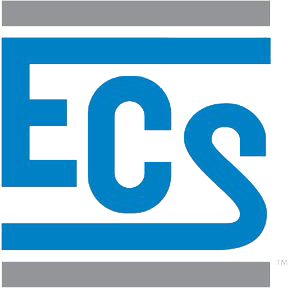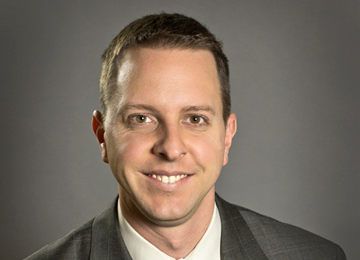He needed a summer job after his freshman year at James Madison University (JMU). He was looking for a paid internship, and he wasn’t interested in sitting at a desk or wearing a suit. Joe felt he could find a job related to his field of study: geology and soils, and he was ok to start at the bottom. His geology professor knew JMU alumni who worked at ECS, so he suggested that Joe contact the firm.
ECS hired Joe as a construction testing technician. That summer, ECS had an enormous geotechnical project in Loudoun County, a tract of land with about 1,000 test pits that needed to be logged. “Say, young man – you have a geology background – are you interested?” Joe spent the entire summer working on that single project. He did soils classifications in the lab on days when it rained, and he obtained his Concrete I and Soils I certifications.
Joe worked at ECS every summer until he graduated from JMU. The second summer took him to Tysons Corner to conduct concrete and soil compaction testing. He spent a month at Randall Highlands Elementary School in Southeast DC to observe the bottom of each of the 30-40 drilled shaft foundations, which ranged in size from 2.5 to 5 feet in diameter and 30 to 50 feet deep. During his third summer, he took JMU’s six-week field geology class that ran 8:00 a.m. to 5:00 p.m. every day, with homework additional. He topped it off by spending two weeks at the Capitol Visitor Center coordinating the activities of five geotechnical drill rigs.
After Joe graduated, ECS hired him as a geotechnical field geologist, where he spent four and a half years marking boring locations, conducting infiltration testing, pressuremeter testing, and coordinating drilling activities, such as Miss Utility, scheduling drillers, and coordinating site access. Promoted to Project Manager in 2007, Joe began to learn additional aspects of geotechnical engineering beyond the processes of subsurface exploration and data collection. In-house mentors helped him learn about the design aspects of projects and how to engineer solutions to the complex problems presented by the soil conditions.
Joe was promoted to Manassas Branch Manager in January 2012. Under the tutelage of yet another in-house mentor, he learned the duties of being a Branch Manager. Joe also discovered that while clients are motivated by different factors in PrinceWilliamCounty, they still value the service ECS provides.
“The staff in Manassas made my job easy,”says Joe. “I have a great team, and I have a lot of faith and trust in them. As a branch manager, you’re accountable for the performance of the office. If we’re not getting it done, then tough conversations are a given. As a project manager, I was accountable to my own clients for making sure work was done right. As a Branch Manager, I have more direct involvement in relationships with all of our clients, even though I may not be directly involved in the day-to-day with projects. I get involved when problems come up.”
Lessons Learned
“Some don’t view working in the field as being a professional position,” says, Joe, “but you learn so much from a practical standpoint by working in the field. You may not learn as much on the technical side, unless you go a little out of your way. Ask questions: why are we gathering all this data and what are we supposed to do with it? You learn different things sitting in an office, but without that field experience, you run the risk of becoming book smart without learning the street smarts of geotechnical engineering.
I hope that young employees recognize the value of being in the field. People coming out of college will have plenty of time to sit behind a desk and do design work. My advice is, don’t rush through field work like going into the office is the reward. Enjoy being out there and be engaged.”

